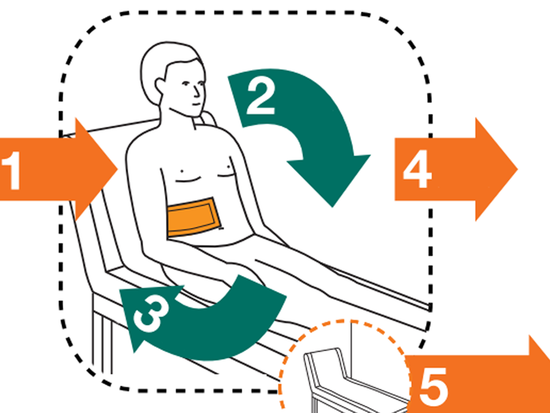
Surgical site infections (SSI) are a serious problem globally; they are the most frequent type of health care-associated infection (HAI) observed on admission in low- and middle-income countries (LMICs). Approximately one in 10 people who have surgery in LMICs acquire an SSI, and SSI is reported as the second most common HAI in Europe and the United States of America. Therefore, it is crucial to include SSI prevention activities in your overall IPC programme.
Language: English
Health topic
Course information
Overview:
This course will cover global SSI rates and burden, risk factors for SSI, prevention measures you can take to reduce SSI, and adaptive and technical approaches to improving and applying the WHO multimodal strategy. If you have not yet taken the WHO Core Components and Multimodal Strategies module, we recommend taking it before proceeding with this module.
Learning objectives:
By the end of this course, you will be able to:
- describe the interconnection between SSI prevention and overall IPC efforts, and how preventing SSI should be a critical part of a strong, effective IPC programme;
- describe and explain the burden and epidemiological factors that influence SSI, understand of the importance of reviewing existing and emerging data to aid SSI reduction within the local context.
- list the risk factors that contribute to determine SSI,
- explain the content of the WHO SSI prevention recommendations,
- understand the evidence supporting the recommendations.
- describe adaptive and technical improvement approaches and the role of process and outcome indicators, which form part of an improvement project applied to SSI prevention;
- explain how evidence-based recommendations on SSI can be implemented effectively in both the local context and real-life situations; and
- describe and explain the WHO multimodal improvement strategy designed to implement SSI prevention recommendations.
Course duration: Approximately 5 hours.
Certificates: A Record of Achievement will be issued to participants who receive at least 70% on the post-test. You have an unlimited number of attempts to meet the threshold.
Course contents
Overview of Surgical Site Infections (SSI):
Surgical site infections (SSI) are a serious problem globally; they are the most frequent type of health care-associated infection (HAI) observed on admission in low- and middle-income countries (LMICs). Approximately one in 10 people who have surgery in LMICs acquire an SSI, and SSI is reported as the second most common HAI in Europe and the United States of America. Therefore, it is crucial to include SSI prevention activities in your overall IPC programme. This first section of this SSI module will cover global SSI rates, the importance of understanding the burden of SSI in your facility, or in facilities in your country, and how the World Health Organization’s (WHO) core components support implementing SSI prevention measures as part of IPC programmes. If you have not yet taken the WHO Core Components and Multimodal Strategies module, we recommend taking it before proceeding with this module.Prevention measures:
In the first section of this module, you learned about the global burden of SSI and what you can do to learn about the incidence of SSI in your own facility or country. This section will cover risk factors for SSI, and prevention measures you can take to reduce SSI.Implementation approaches to reducing SSI:
Now that you have learned about the WHO recommendations and the importance of preventive measures in reducing SSI risk, let us look at ways you can successfully implement these recommendations in your facility. This third section in the SSI module will cover adaptive and technical approaches to improving and applying the WHO multimodal strategy. You will also learn about the Surgical Unit-based Safety Programme (SUSP) and how it has been used in various countries to reduce SSI rates.
Enroll me for this course
Certificate Requirements
- Gain a Record of Achievement by earning at least 70% of the maximum number of points from all graded assignments.
- Gain an Open Badge by completing the course.